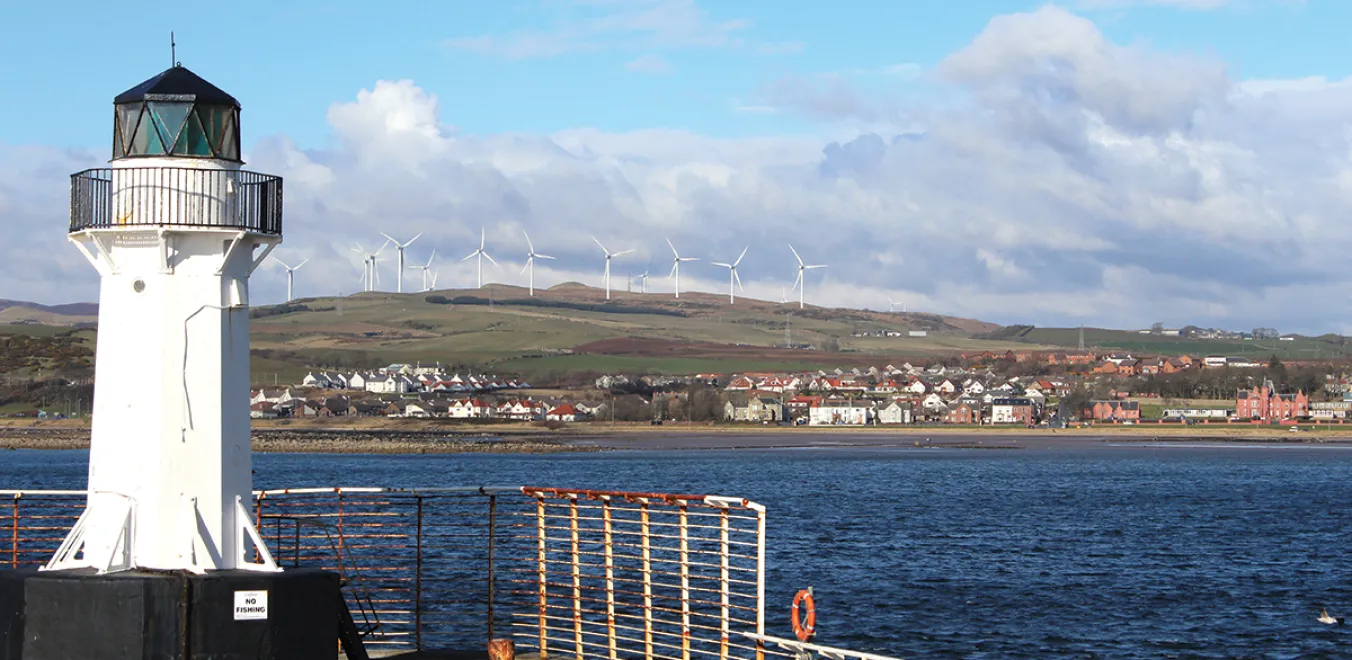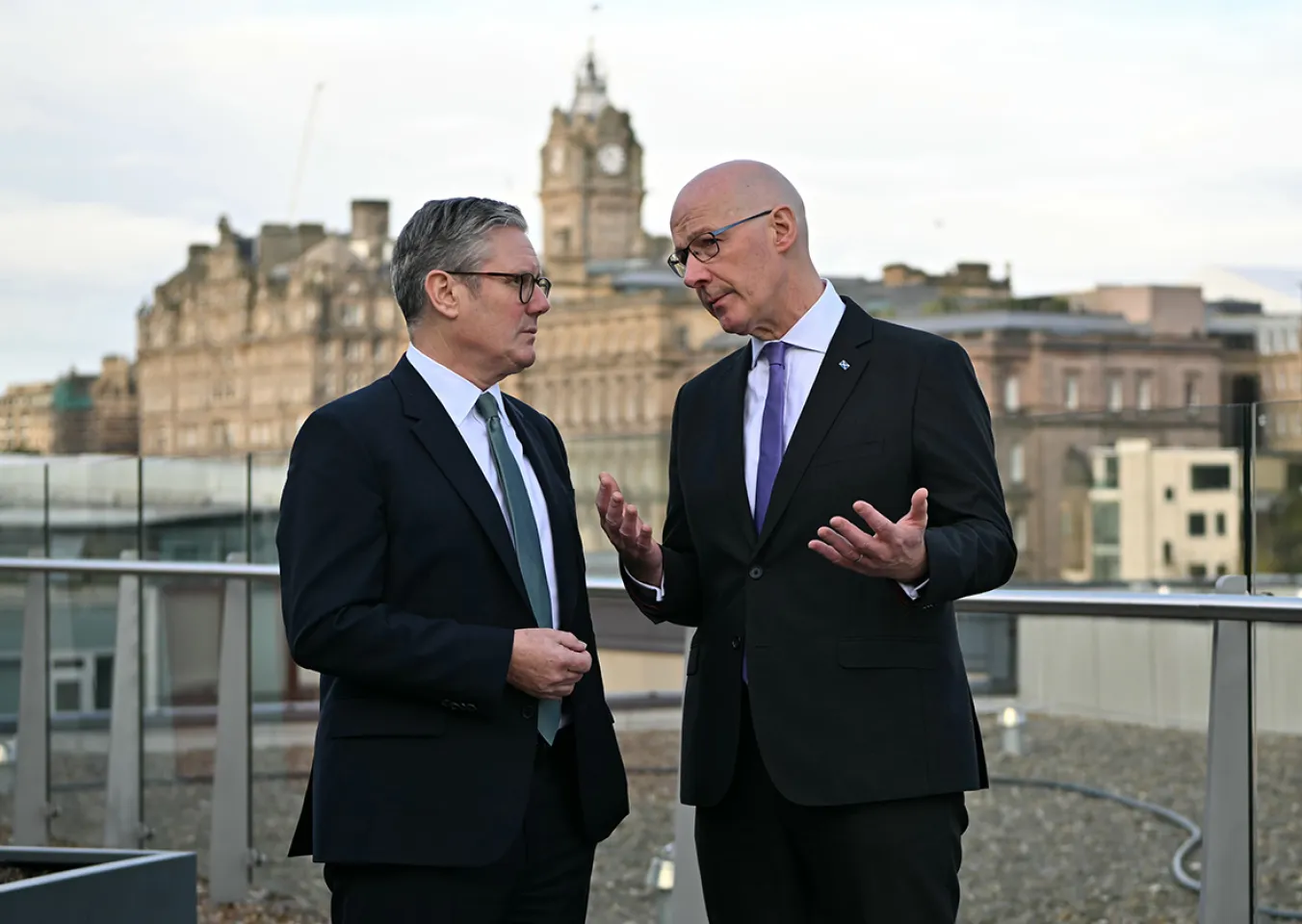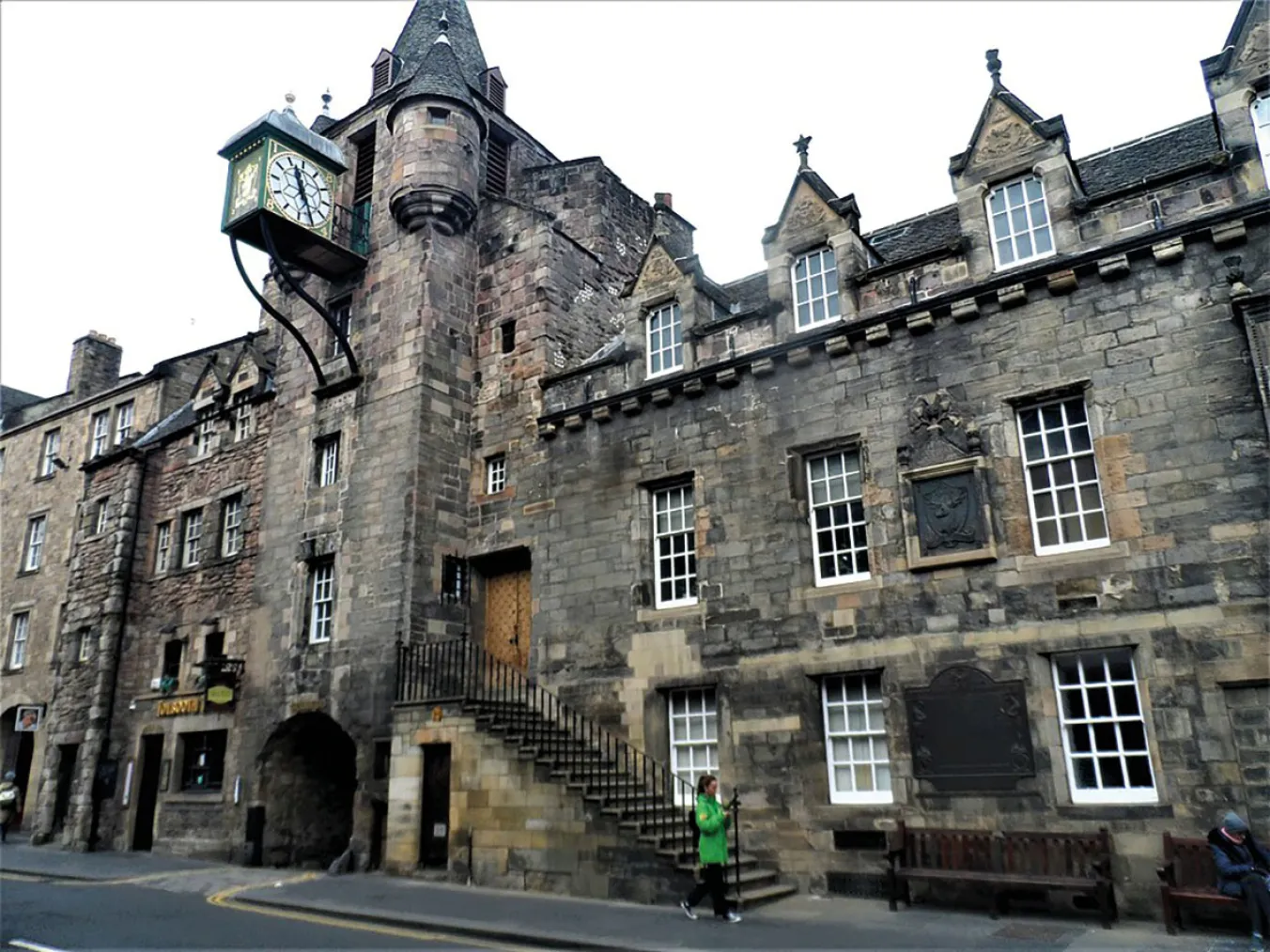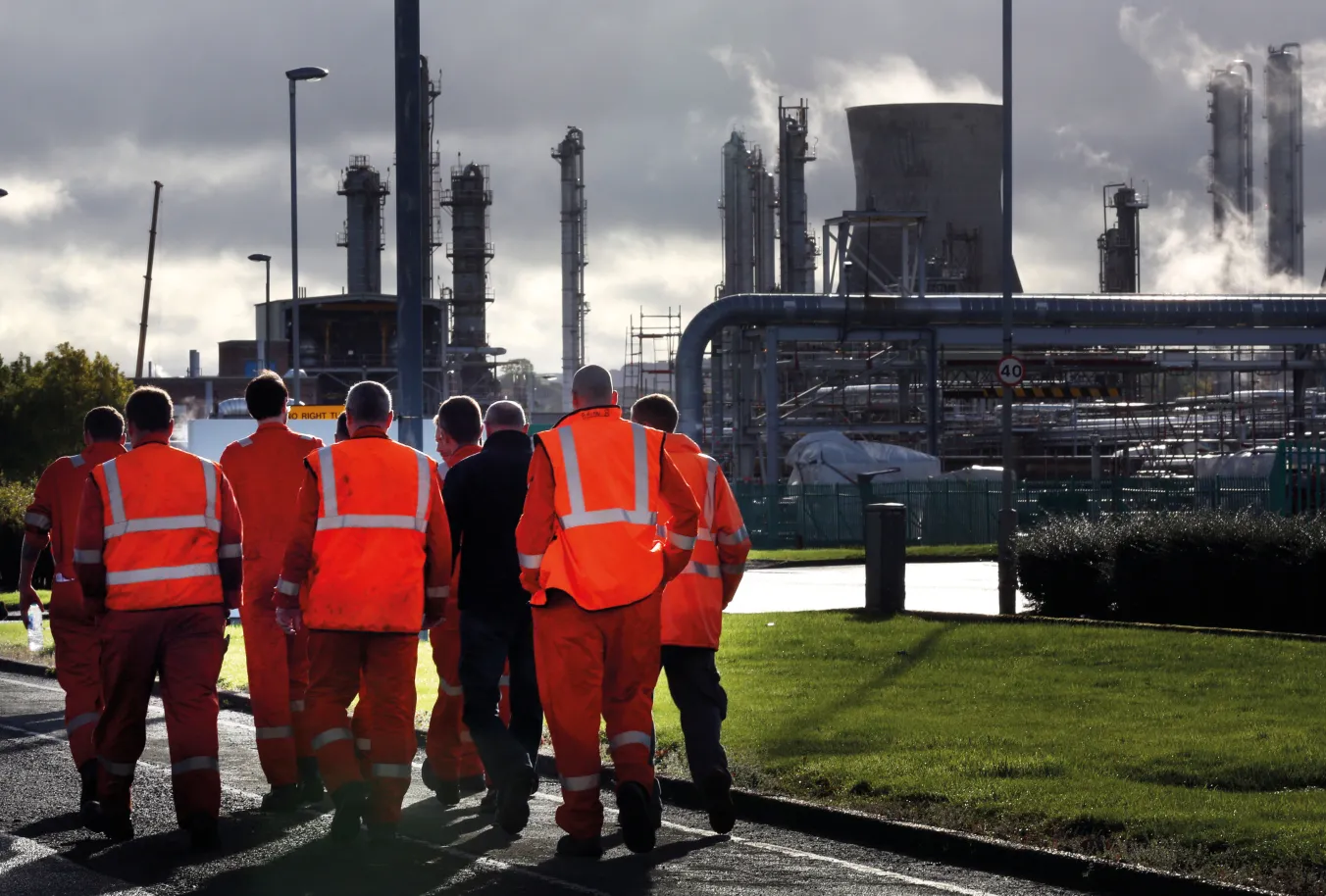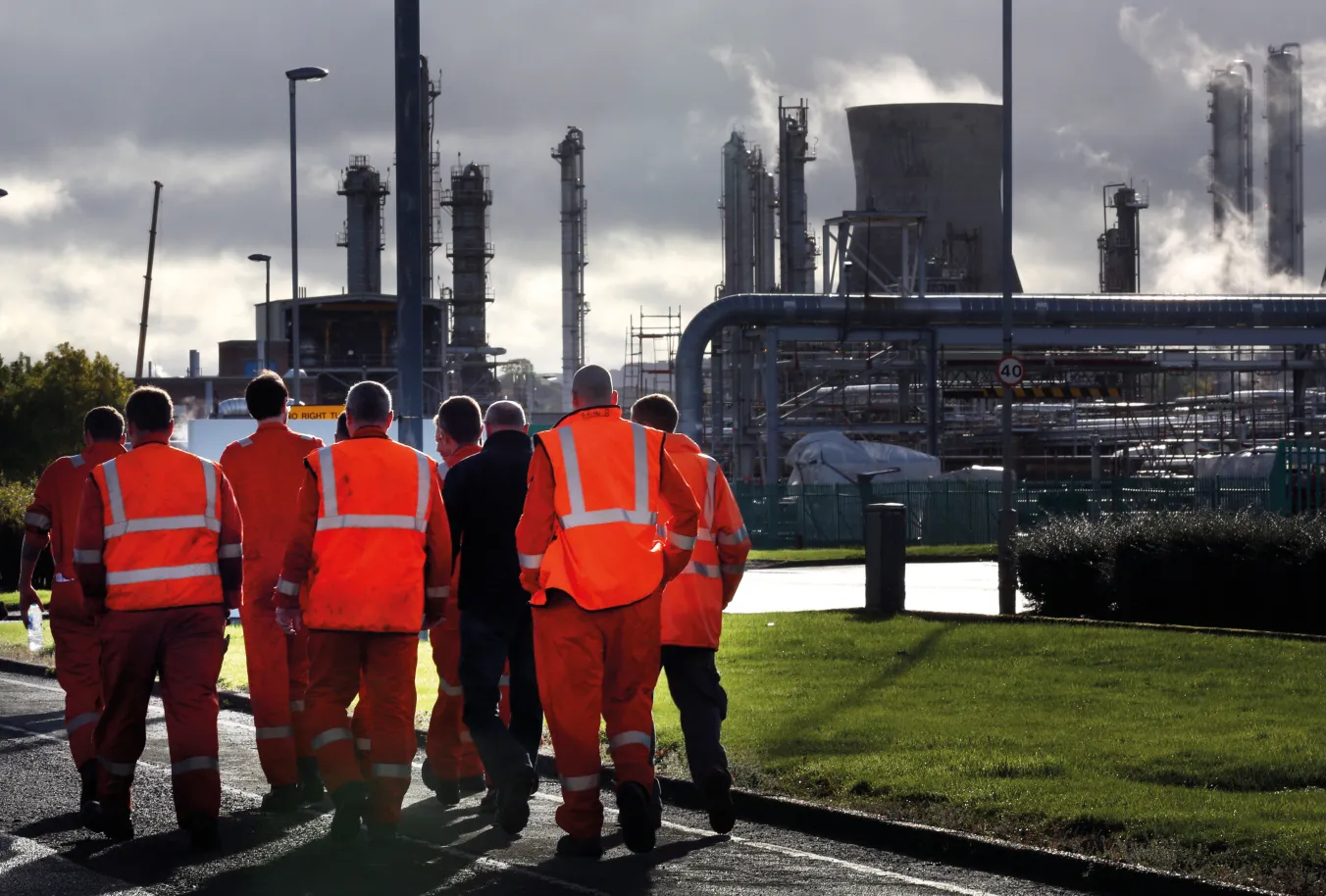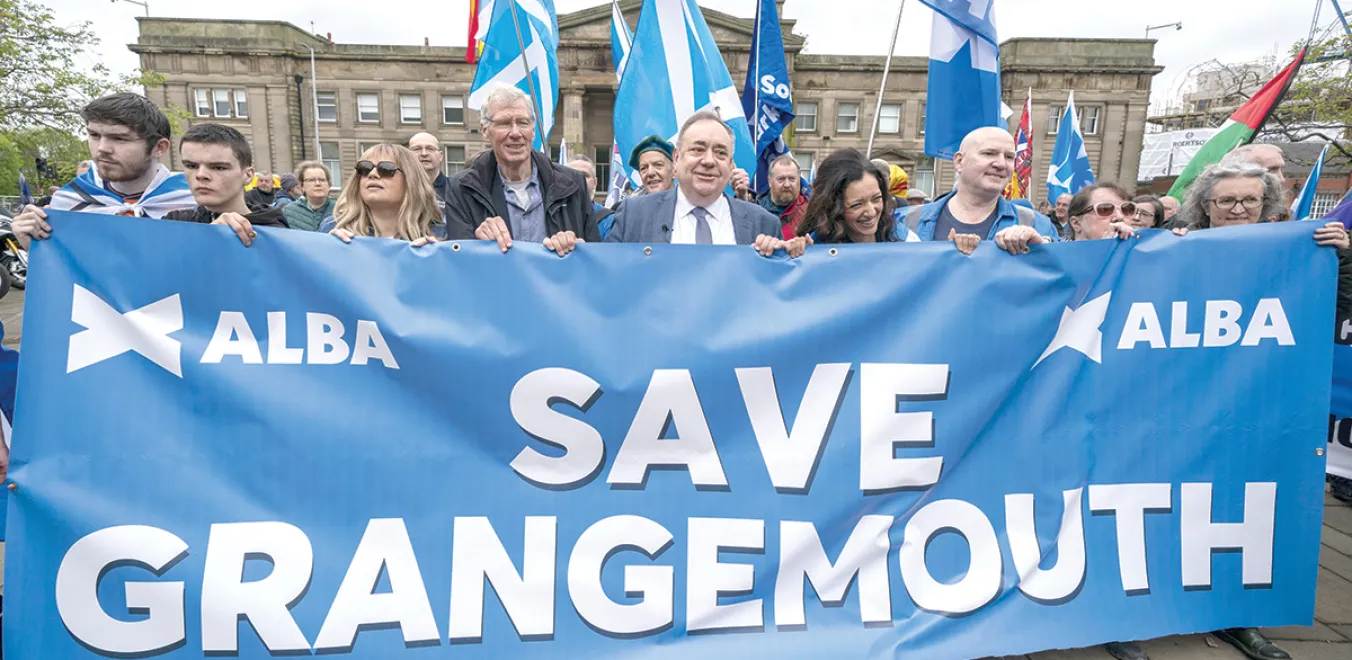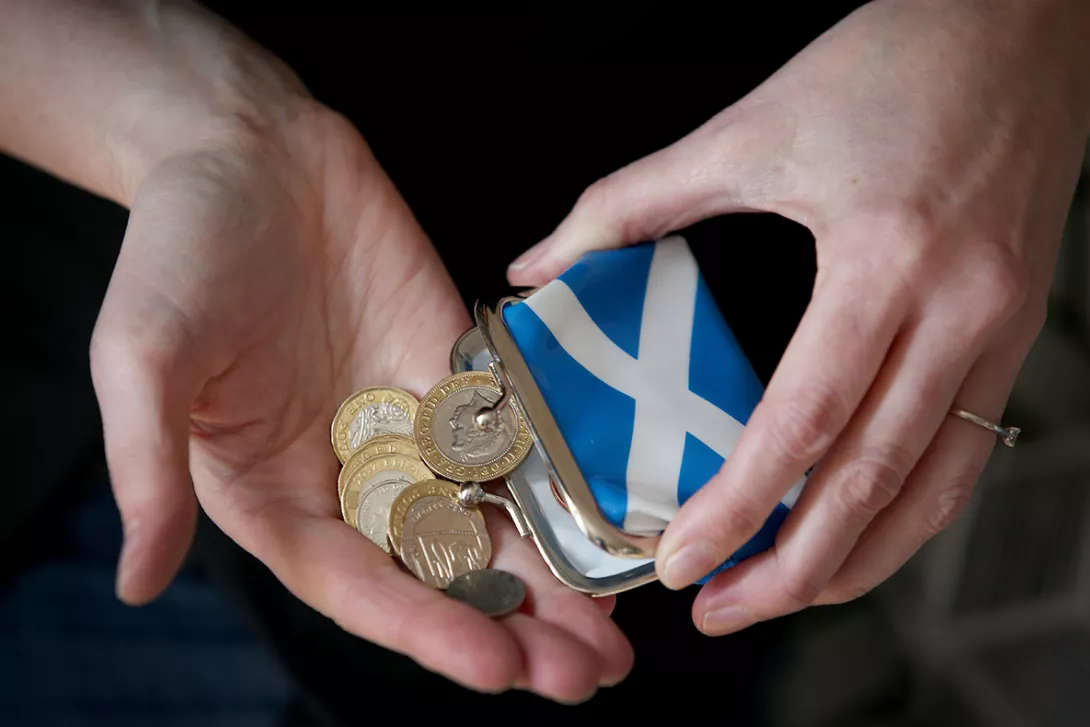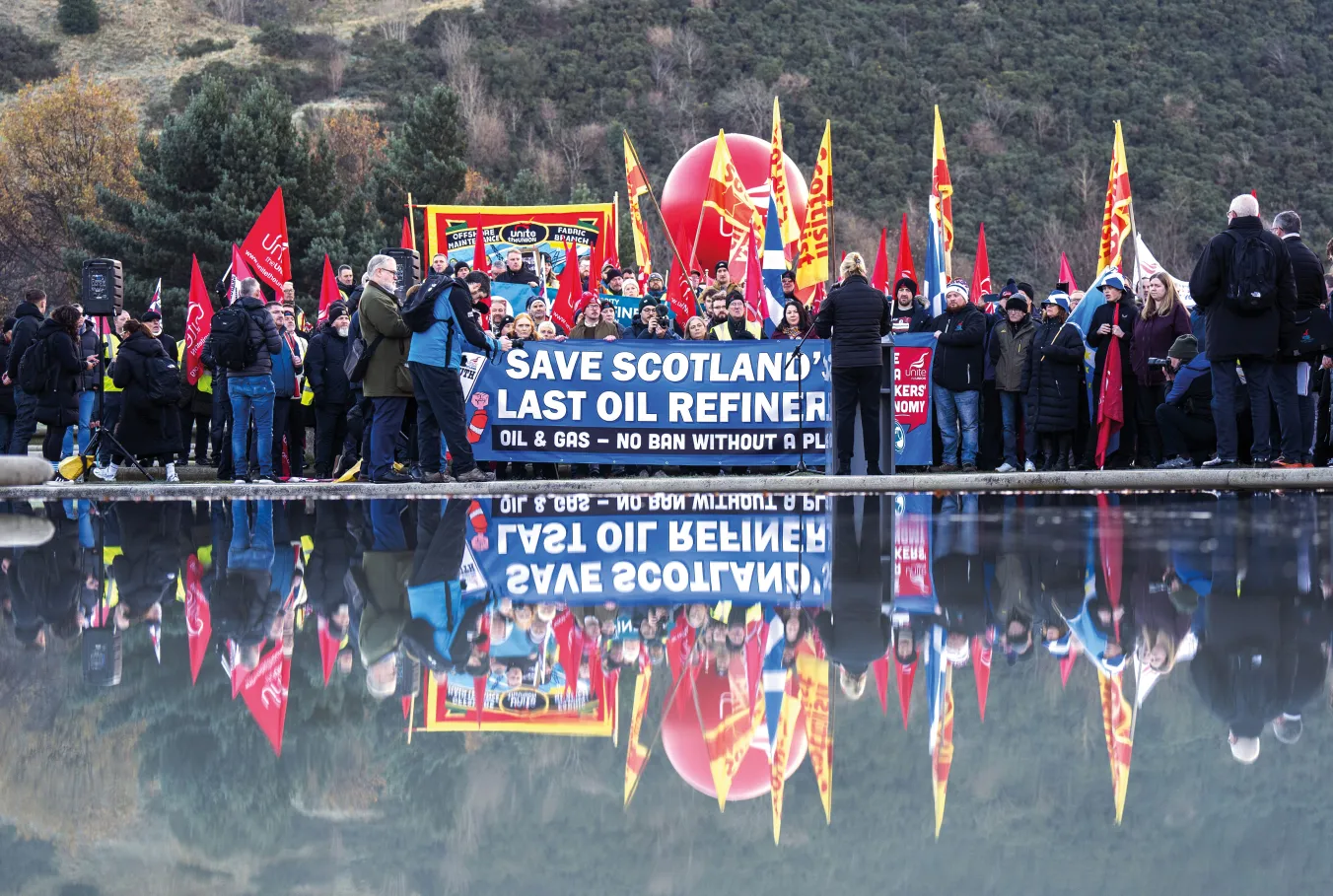
FOR my sins, I spent a great deal of the last fortnight riding and driving across the central belt of Scotland, back and forth to Holyrood and home.
The space in between looks pretty barren from the road or the railway carriage, the few towns and villages to be seen are a shadow of their former selves, torn down from their industrial primes; Scotland’s commuter-land of car parks with houses thrown in as an afterthought. Bypassed.
The rivalries are such between Glasgow and Edinburgh that it’s often joked that a visa is required for such a journey, but alas, the price instead is £31.40 by train or staring at the back end of a lorry on the M8 for an hour and a half.
I thought to myself how it could all have been very different. I remember in the first flush of the Labour government in 1997, for a few moments, Glasgow had been considered as a home for the Scottish Parliament with talk of taking on the old Strathclyde Regional Council buildings that stood by the M8 wound carved through the city, Nye Bevan House and all.
Scottish Power’s new-ish and defiantly white headquarters now stands on that spot, across the road from the 1970s bronze sheen of what was once the home of BritOil.
Back in Edinburgh, we wander down the narrow stone streets to find upturned concrete boats with MSPs sheltering inside. Most days, there are gatherings there by the ponds against the genocide in Gaza or council cuts, for farmers or rent controls, and all presided over by an extinct volcano called Arthur’s Seat.
I readily concede that there isn’t a view like it outside any parliament on Earth. The gathering spot may be cramped, windswept, and cold, but that can be forgotten when the sky looks so vast.
The building wasn’t designed to loom, to impose, but to sit at the foot of the crags alongside us, the people and the elected free to mingle and free to raise their voices.
For reasons of security, that vision was never realised — it’s no more or less accessible than any other parliament — not that you’ll find many to admit it. For all that talk, the interior of the building spoke to the future, in its own playful way.
A warren of hidey-holes and stairs to nowhere in particular, it is playful, modern, bright and airy … but ultimately, useless.
The conceit which riddles the building and its contents is that somehow its existence is enough, that a signal has been sent, that the sun shining between the wooden bars on its windows reveals more than that same sun can reveal through bars of lead in Pugin’s Palace of Westminster.
When you choose to compare yourself to a centuries-old institution groaning under the weight of the unelected and over-privileged, it’s bound to provide comfort, but what paltry ambition that is.
Last week, I stood outside with hundreds of others who had marched down the Royal Mile to Holyrood. Workers from Grangemouth and their comrades from refineries across Britain marched under their Unite banners to demand action from those in power — in whatever government — to step in to save their jobs, save a key national asset, and deliver on the promises of a truly just transition from fossil fuels.
The brass band that led them echoed those that had led the miners so many times before, comrades whose fate the workers of Grangemouth are determined will not be allowed to befall them.
Shortly after, the farmer arrived, planting a tractor outside the parliament to call for more support for their industry and expressing their frustration at the British Labour government’s changes to inheritance tax.
At First Minister’s Questions, guess which issue was heard? Guess which group won the fulsome support of John Swinney?
On Grangemouth, the issue on which they can actually act, silence.
On the reserved issue of inheritance tax, righteous indignation at the appalling attack on farmers owning land worth more than £3 million — a sum which incidentally can buy you a whole lot more of Scotland than elsewhere.
A week later, we had the annual peak of this clown show, the publication of the Scottish government’s draft Budget. We waited with bated breath to hear how the Scottish government would disperse the unexpected £5 billion in extra funding from Britain’s Budget in October.
SNP finance secretary Shona Robison — following in the footsteps of Mr Swinney — used the set-piece to boast that Scotland had the lowest taxes on business properties in Britain for the seventh year running.
Think on that.
Scotland under the SNP had lower business property taxes than Theresa May, Boris Johnson, Liz Truss and Rishi Sunak, and its leaders see that as something to actually shout about as services rot.
On income tax, she went further, promising not to raise it or introduce new bands until 2027, while moving the lower thresholds up by 3.5 per cent, an effective tax cut to everyone who pays income tax in Scotland, from the care worker to the First Minister himself.
Colleges, many of which are on the brink of financial collapse after 17 per cent real-terms cuts to their budgets over the last three years, will have to endure another year of cost-cutting, and their workers will no doubt face yet another round of attacks on their jobs, terms and conditions as a result.
Councils’ only relief, meanwhile, is being given the chance to increase council tax this year, a measure unlikely to fill this year’s Budget cut, never mind undo a decade-and-a-half of austerity.
Not to worry, we have impressive new targets to meet the targets routinely missed in the NHS, which will themselves be missed as council cuts continue to undermine social care and plunge more people into crisis.
The announcement that overshadowed it all, of course, was on the two-child cap. It will be scrapped in Scotland by “early 2026,” Robison told us. What’s not to like?
This disgusting Tory policy leaves 15,000 children in Scotland languishing in poverty because their mothers cannot prove they were conceived in rape.
There is no legitimate argument in the policy’s defence, and those in the Labour government who argue it must stay to keep budgets in check, or — in some ways worse — that it is terrible but must stay until a new benefits system is devised, should hang their heads in shame, or even better, resign.
I’ll reserve judgement on the SNP’s announcement, but at least they have now accepted something can be done, even if they have allocated not a single penny to its mitigation and tied themselves into not raising taxes later on to help pay for it either.
For seven years, they have denied action was possible, moving through the five stages of grief for governments who mourn having to actually do something about anything — denial, anger, bargaining, embarrassment, and acceptance.
The process moved slightly faster on the bedroom tax; it took only two years, which included then finance secretary John Swinney in his angry phase telling MSPs it shouldn’t be mitigated because it would “let the Tories off the hook.”
Maybe it’s an announcement made possible by Labour’s pitiful bargaining on the subject, maybe this announcement is just what’s needed to move Labour into embarrassment, maybe it’s all just cynical choreography, but if one child escapes poverty as a result, I’ll live with that.
We shall see.
Turning to head back to greater Govan, the glow of Grangemouth’s flare still haunts the sky.
Its fate, and those of its workers, still in the hands of a market which SNP, Labour, and Tory governments before them assure us cannot be bucked.
They haven’t made it out of denial yet, but they better get their act together before their negligence creates another ghost town. Grangemouth can’t wait seven years.
